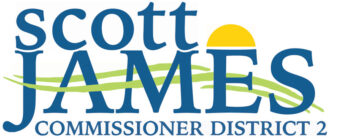Do you trust government? Do you trust professional associations, like the American Medical Association? Do you trust the Centers for Disease Control? The Federal Bureau of Investigations? The National Institute of Health? Do you trust the very institutions – from Congress to the executive to the judiciary to the church – that made this nation great?
Neither do I.
That’s because the social compact is broken.
In the grand experiment of self-governance, the “social compact” stands as one of the most essential yet least understood concepts. Rooted in the philosophies of thinkers like John Locke and Jean-Jacques Rousseau, the social compact is an unwritten agreement between the government and the governed. It’s the mutual understanding that individuals sacrifice some personal freedoms for the greater good, while the government, in turn, promises to act in the best interests of its citizens.
The idea is noble, timeless, and necessary for any functional society. But today, we must ask: Is the social compact still intact, or has it been fractured beyond recognition?
The Cracks in the Foundation
To recognize a broken social compact, one need only look around. Trust in government institutions has plummeted. Communities are more divided than ever, not just along political lines but across fundamental questions of fairness, equity, and justice. Let’s consider some key ways this trust has eroded:
- Overreach and Overregulation:
Governments have increasingly centralized power, encroaching on the autonomy of individuals, families, and local communities. Whether it’s unelected bureaucrats creating binding regulations or legislators passing sweeping mandates that disregard local needs, the sense of partnership between the governed and those governing has turned into a one-sided affair. - Lack of Accountability:
Scandals, corruption, and incompetence within government systems have left many feeling betrayed. From public officials who avoid responsibility for poor decisions to institutions that fail to deliver on promises, the people are left wondering if the “public servant” still serves the public. - Misplaced Priorities:
The social compact assumes that government focuses on the welfare of its people. Yet, policies often prioritize special interests, corporate lobbying, or global agendas over the needs of everyday citizens. This creates a sense that the “greater good” has been redefined to exclude the average person. - Erosion of Civil Liberties:
The trade-off of personal freedom for security or societal benefit is central to the social compact. But when liberties are eroded—whether through censorship, surveillance, or overbearing public health mandates—people begin to see the agreement as unfairly skewed.
Evidence of a Broken Compact
- Public Dissatisfaction: Polls consistently reveal that trust in government institutions is at historic lows. This distrust is not just a partisan issue; it’s a bipartisan cry for reform.
- Civic Disengagement: Voter turnout, political participation, and engagement in public discourse have dwindled. When people believe their voice doesn’t matter, they opt out.
- Cultural Division: The compact assumes shared values and goals, but when society is fragmented, it’s difficult to identify a common “greater good.”
Why Does This Matter?
When the social compact breaks, the very glue that holds society together starts to weaken. Laws and policies lose legitimacy because they are no longer seen as arising from a partnership but as dictates from a distant ruling class. Communities become alienated from the very institutions designed to serve them.
And here’s the kicker: a broken social compact doesn’t just lead to discontent—it can lead to chaos. Revolutions, uprisings, and systemic collapse often arise when people no longer believe the covenant between them and their government is being upheld.
A Path to Renewal
The good news is that social compacts can be rebuilt. But doing so requires a recommitment to the principles that created them in the first place:
- Decentralization and Local Control:
Empowering local governments and communities restores trust. Decisions made closer to home are often more relevant, fair, and transparent. - Transparency and Accountability:
Public officials must operate with integrity, and institutions must make their actions clear and understandable. Trust grows when people see that leaders are held to the same standards as everyone else. - Recommitment to Civil Liberties:
A government that respects individual freedoms earns the respect of its citizens. True security lies in preserving the rights that make societies free and vibrant. - Community Engagement:
Rebuilding the social compact requires buy-in from the people. Governments must actively engage citizens, listen to their concerns, and include them in decision-making processes.
The Responsibility of Renewal
The social compact is not a one-way street. It’s a mutual agreement that demands responsibility on both sides. Yes, governments must do better—but citizens also must engage, demand accountability, and work to rebuild the trust that has eroded.
We cannot afford to let this vital covenant remain broken. A fractured social compact weakens us all. But with awareness, action, and a collective recommitment to the principles of trust, fairness, and mutual respect, it is possible to restore what has been lost.
Let’s get to work.


